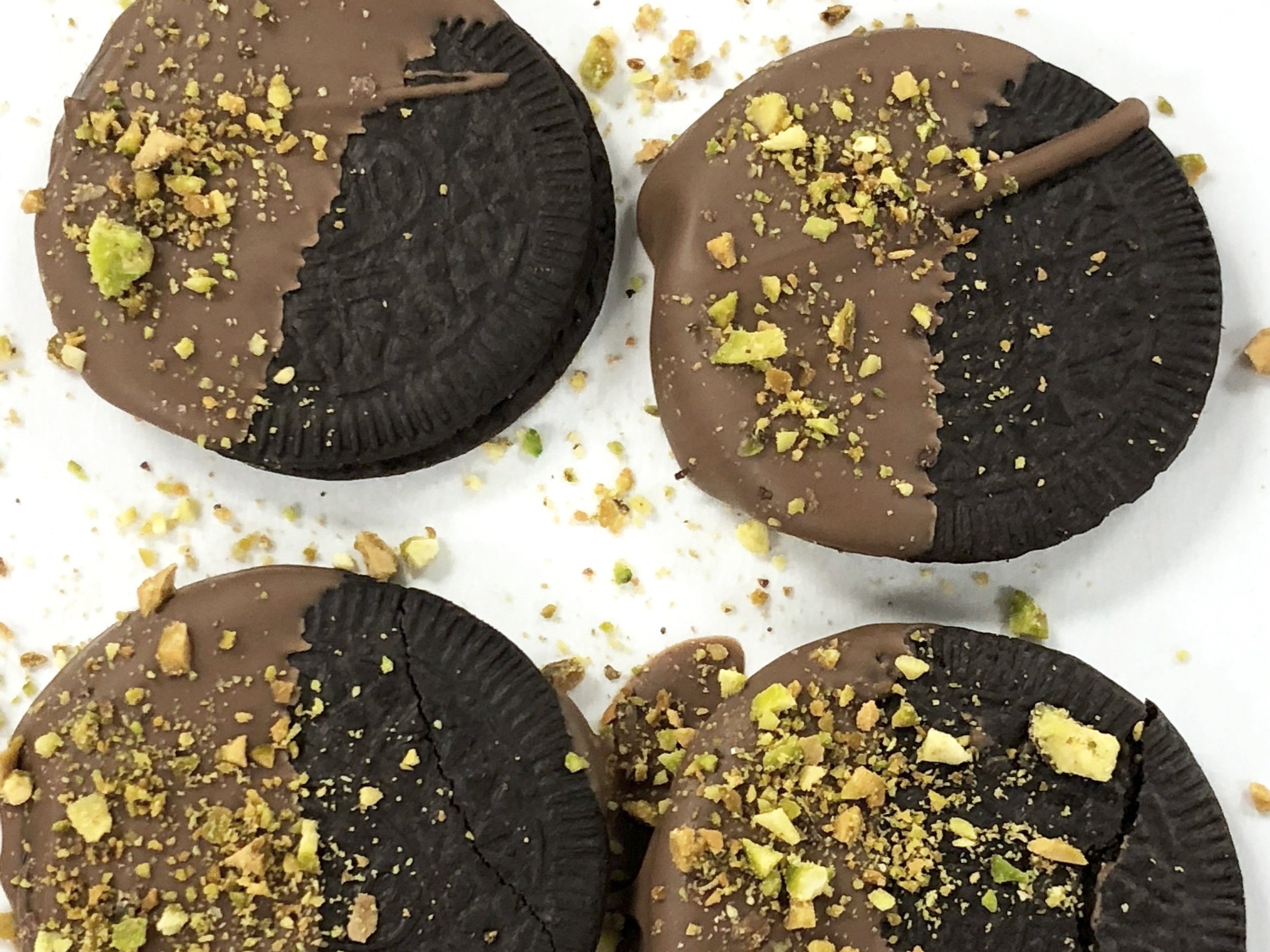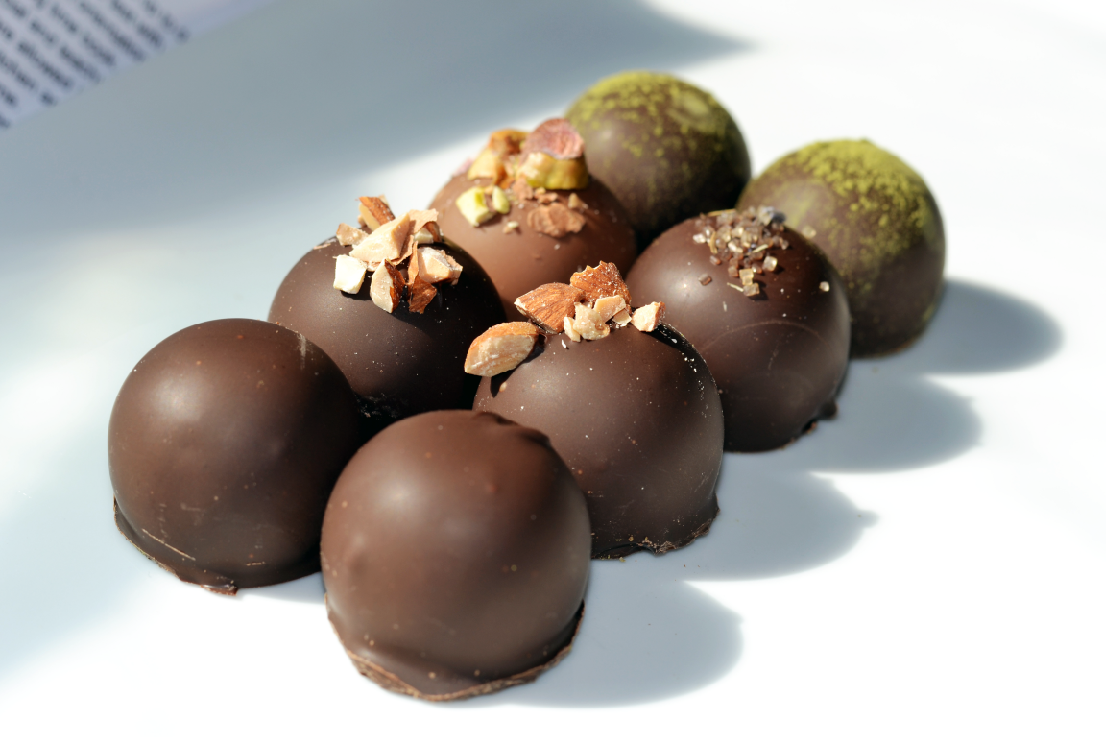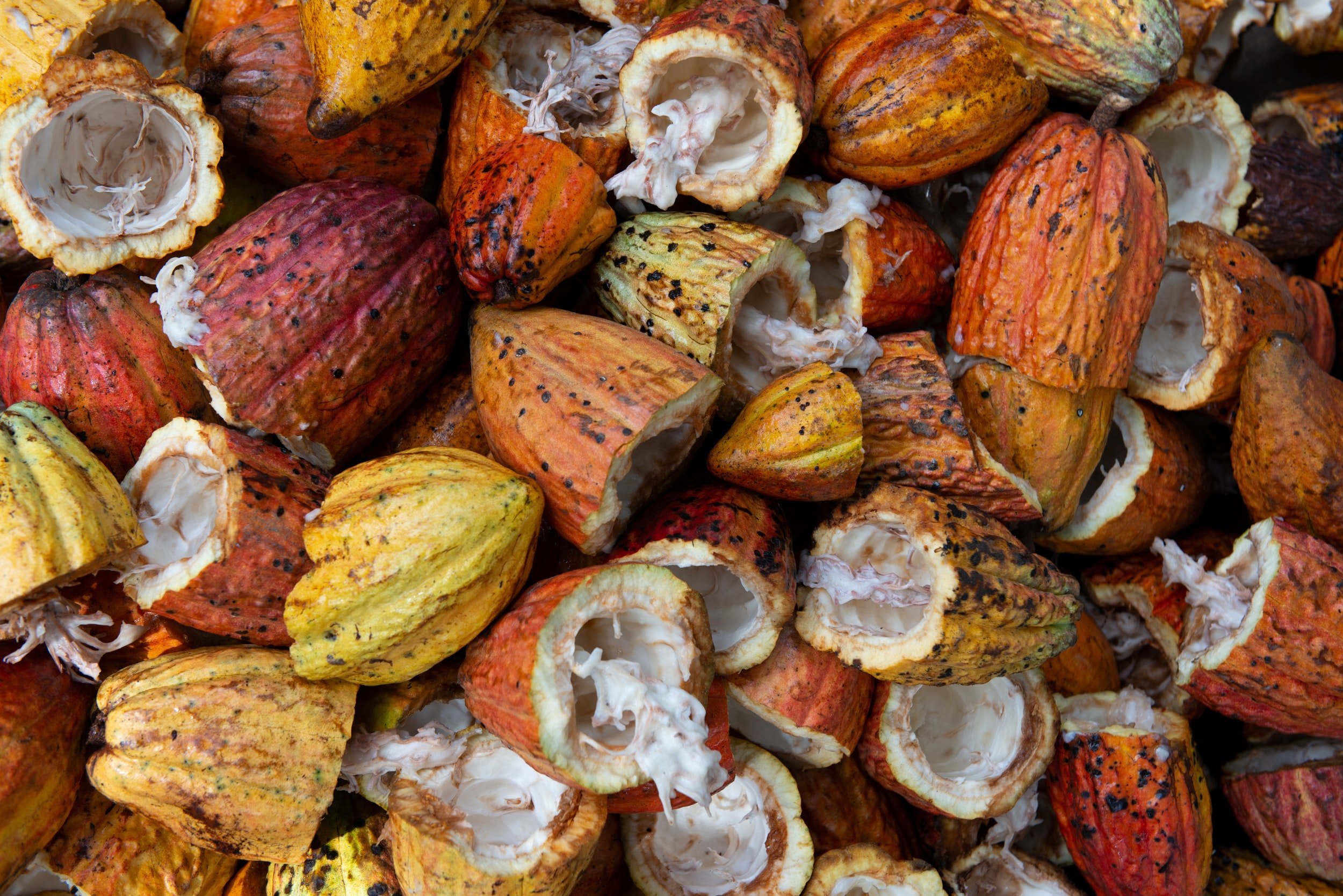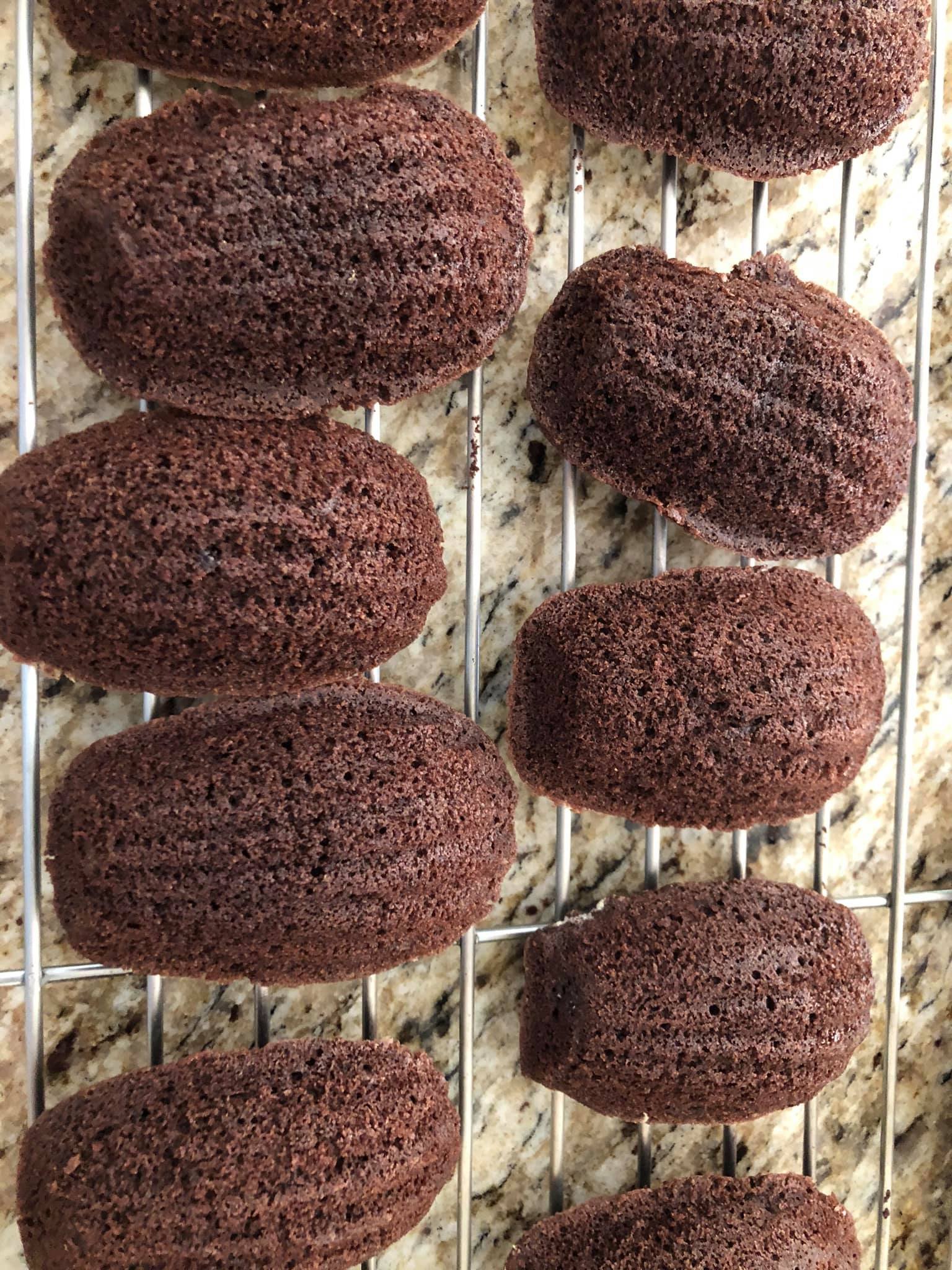thoughtfully made to celebrate life, one bite at a time.
Chocolena Co-Founder Jim Weiss believes in celebrating life right now. After selling his financial services business, he explored his love of chocolate by studying at Ecole Chocolat in Vancouver and Valrhona in France. He then began his first venture, Pomfret Chocolates, where he hosted popup chocolate shops, tastings and chocolate events for businesses.
In 2022, Jim joined forces with his daughter, Hadley Rosen, whose career in marketing and communications brought new insight into the company. Also a graduate of Vancouver’s Ecole Chocolat, Hadley has helped to reimagine Pomfret Chocolates to create Chocolena, a customer-focused business with an emphasis on special occasion favors and corporate gifts.
This father-daughter team is devoted to sharing delicious treats that honor a life well lived and all of its special moments. Their hand-crafted, small batch treats are inspired by their culinary travels around the world.

The ChocoLENA
FAIRY TALE
The name actually derives from a little girl, named Lena Louisa, who was born on a cacao plantation in the late 1700’s. Everyone called her “Chocolena.”
The story goes that one day when Lena Louisa was eight, she asked her father why all the cacao beans from their planation were shipped back to Spain and none were kept for their own enjoyment. Her father responded by telling her that the beans were almost as valuable as gold and they needed to sell every last one to the Spaniards who were processing the beans into a drink called hot cocoa. He went on further to say that the Mayans invented the drink, called chocolhaa (“ bitter water”), and that the Aztec called it xocolatl. When the conquistadors came to Costa Rica, they adopted the “drink of the gods” and brought it back to Spain. Since then, most plantation owners were selling the beans and not consuming them in any way; the crop was just too valuable.
Lena Louisa’s father went on to say that the indigenous people were making beans into a paste just like the Mayans and Aztecs had, and that they usually combined the paste with chilis and sugar and vanilla beans and water or milk that made for a delicious frothy drink. Further, many people of Indigenous and Spanish lineage did indulge in the drink but the church frowned upon it.
One day when Lena Louisa was walking back to the main house from riding lessons, she spotted about 100 beans strewn across the gravel road. They had apparently been spilled from one of the huge burlap bags traveling on its way to the nearby port city for shipment to Spain. She picked them all up and dropped them into her riding boots, walking home in her stocking feet.
She was so excited when she arrived at the main house that she ran right up to her bedroom and emptied the boots on to her canopied bed. She knew she would be in trouble with her stern father but did confide in her nanny from Granada, Spain .
That night at bedtime she revealed the stash of beans to her nanny. The smell of the beans reminded her of her uncle’s pastry shop where she worked the previous summer.
Lena Louisa’s nanny went on to tell her about all the wonderful creations at the shoppe including something called “chocolate bars.”
The next day Lena Louisa begged her nanny to make some of those chocolatines, or bars of chocolate. But, the process of converting the beans into chocolate was complex. She explained to Lena Louisa that first the beans would need to be roasted, then cracked, winnowed, and then ground down with a stone dowel on a large lava stone called a matate. This would produce a cacao mass that could be mixed with vanilla beans and sugar and made into a paste.
“Let’s do it” cried Elena Louisa. “We can use the abandoned house behind the horse stalls. We could make some chocolate, even those chocolatines right there.”
So, the next day they took flint , sugar and flour and vanilla pods from the pantry, and all the cacao beans, and went quietly to the old stone house and secretly made their chocolate paste. They then heated and mixed it, and poured into five old tin molds they found in an abandoned cupboard. They let the chocolate set and then knocked out the newly made bars, wrapped them in banana leaves and trudged back up to the main house.
That night after dinner with the family, Lena Louisa said she had a special dessert for all the people at the table, and unwrapped the sugary vanilla bars.
At first Lena Louisa’s parents were angry , but after they consumed two bars, they claimed them delicious, and said from then on Lena Louisa would be called “Chocolena.”
Eventually the people in the town heard about the bars and would come to the main house to ask to buy some chocolate. Lena Louisa’s family could see the potential profit and opened the old stone house to sell hot cocoa and the little bars Lena Louisa had learned to make. Little Chocolena worked beside her parents when she had a chance, and they helped to bring much joy to all they encountered.
OUR PHILOSOPHY
We are a small batch chocolate company.
Small batch or craft chocolate offers a better depth of flavor, is better for those who grow and process cacao, and is healthier due to less sugar and additives. We are committed to securing the best fine cacao, and to offering you an experience that goes far beyond what’s available on a typical supermarket shelf.
“There are many ways to celebrate and chocolate is right at the top. we just love creating explosive flavors and textures that delight one’s palate.”
— Jim Weiss, Owner and Chocolate Maker
Contact us.
Contact us to share more about your special event, or to place an order with worldwide shipping. If you are local, visit us at a popup near you!








